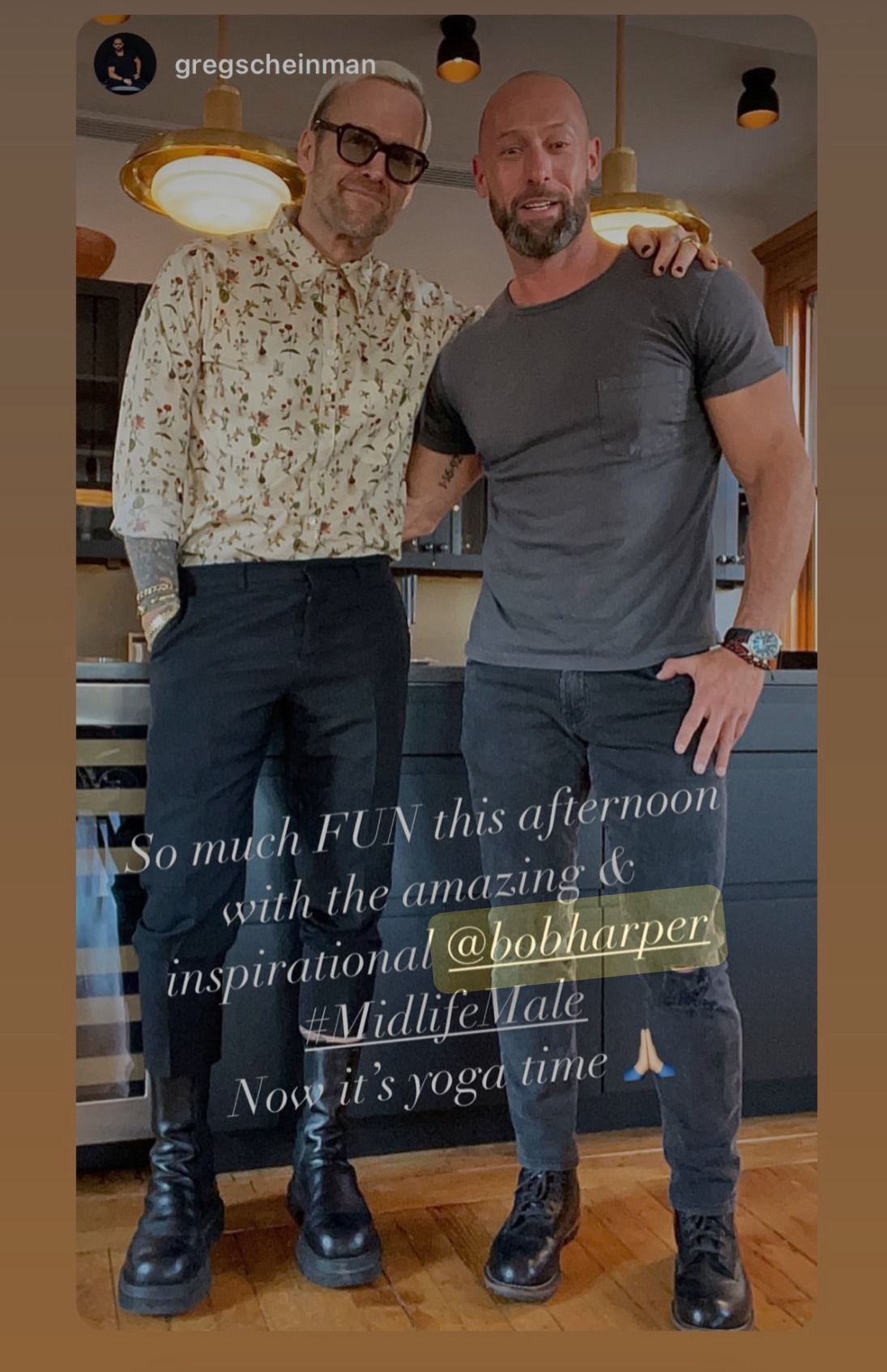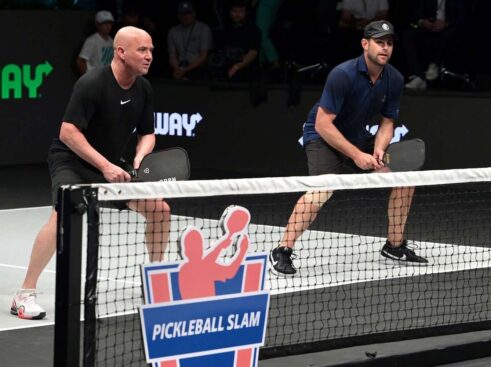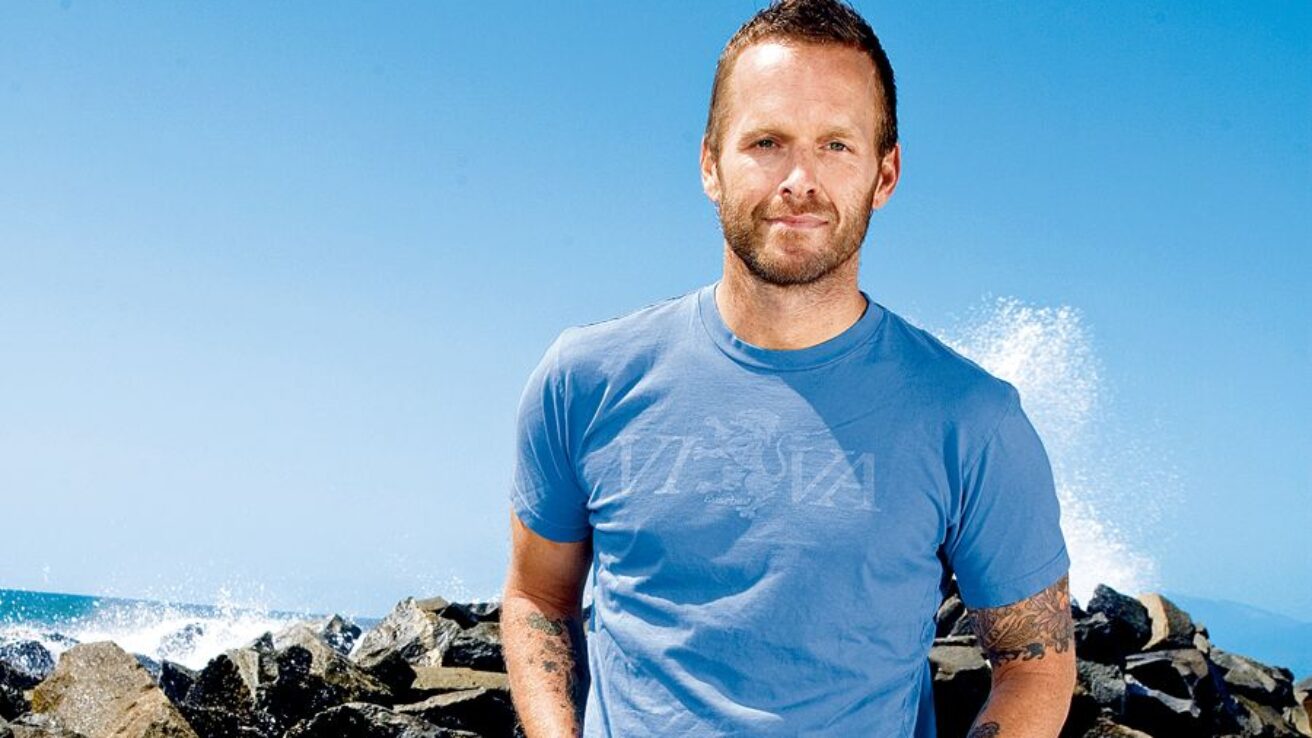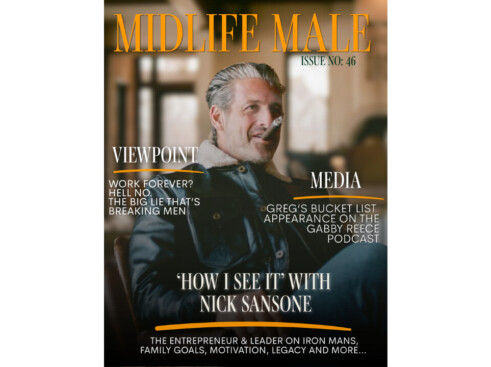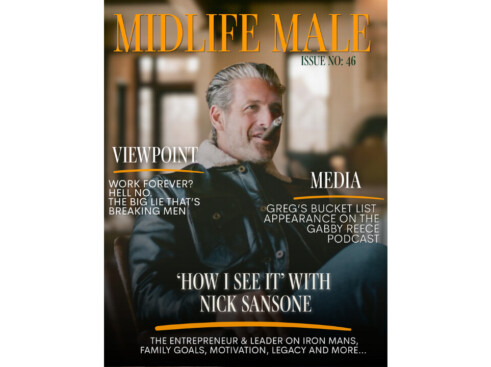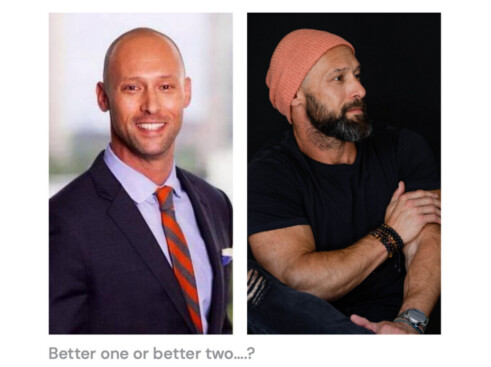Bob Harper is a renowned fitness expert, a New York Times bestselling author, and the creator of the Black Fire workout program. Best known for his role as the host of The Biggest Loser, Bob started his career working at the front desk of a fitness center in Tennessee.
Eventually, his desire to succeed in the fitness industry led him to Los Angeles, where he became one of the most sought-after personal trainers in the city. However, in 2017, a heart attack forced Bob to rethink his approach to fitness. Today, he lives in New York, where he enjoys spending time with friends and compiling bespoke playlists for his hot yoga classes. Midlife Male founder Greg Scheinman discusses daily routines, negotiation, risk taking, The Biggest Loser and more in this wide-ranging conversation. Here is this week’s How I See It:
How I See It with Bob Harper
Greg Scheinman: What does a typical day look like for you now?
Bob Harper: A typical day for me starts early, around 6 AM. I like to get up, have my coffee, and then read for about 45 minutes. I try not to grab my phone right away. After that, I walk my dogs, feed them, and then head to yoga. I come back home and tackle work tasks for the day. I aim to finish everything by 5:30 PM, except on Thursdays. Around that time, I’ll have a tequila and meet friends for a relaxed evening. I’m usually in bed by 10 PM.
Greg Scheinman: Has your daily routine changed over the years or recently?
Bob Harper: My routine has changed to reflect my lifestyle now. When I was working non-stop, especially on The Biggest Loser, I had no life. That show consumed nearly 20 years of my life, and it was all work. I lost friends because I was never available. People didn’t understand how all-consuming the job was. It wasn’t just on-camera work, but also being there day in and day out with the contestants.
Greg Scheinman: When you first entered the fitness industry, what were your goals?
Bob Harper: I started in Nashville, Tennessee, where I stumbled into health and fitness. I didn’t have a lot of money growing up and couldn’t afford college. I worked at a small gym as a front desk person and eventually got certified to teach group fitness classes. It snowballed from there, and fitness became my whole life. I decided to move to Los Angeles, which I considered the fitness capital of the world, to go all-in.
Greg Scheinman: How did you feel about moving to Los Angeles to pursue your career?
Bob Harper: It was one of the scariest things I’ve ever done. I had no idea what I was going to do when I got there. From Nashville to Oklahoma, I kept thinking I should turn around and go back to what was safe. But I fought through the fear and eventually made it to LA, where I found a job at a fitness studio. At first, I worked the front desk to meet people. One of the top instructors, Kathy Kaler, needed a sub, and I volunteered. That’s how I got my start in LA. It was a turning point in my career.
Greg Scheinman: Were you always confident about taking risks, like stepping in as a sub for a popular coach?
Bob Harper: I’ve always had the mindset that you can’t be afraid to fail. Failing is a part of life. If you don’t put yourself out there, opportunities won’t come your way. You have to be brave and lean into fear. For me, nothing was ever handed to me. I had to work hard for everything I’ve achieved.
Greg Scheinman: How do you make decisions about your career, especially when it comes to evolving in the fitness industry and taking on new opportunities like books, TV, and nutrition?
Bob Harper: I’ve always been a good decision-maker, but I also rely on a great team around me, including my agent, Brett Hansen, who I’ve been with for 30 years. When I was in the running for The Biggest Loser, I didn’t have an agent. But once that opportunity came my way, I knew I needed one. Brett took a risk on me, and we’ve had a strong relationship ever since. I trust him to handle negotiations and the business side, while I focus on what I’m good at—training and helping people.
Greg Scheinman: When did you realize you needed an agent, and how did that change your career?
Bob Harper: The only reason I got an agent was because I was in the running for The Biggest Loser on NBC. It was never my goal to be on TV, but the opportunity came through connections I’d built over the years. The audition process for the show was grueling, and I didn’t get the job initially. They chose someone else, but that person tried to renegotiate, and NBC ended up offering me the role. I took it, even though it meant taking a pay cut, because I knew it was a once-in-a-lifetime opportunity.
Greg Scheinman: What was it like working on The Biggest Loser after not initially getting the role?
Bob Harper: It was tough, especially during the first season. The producers eventually told me they had made the right decision in hiring me, and even the other trainer who was initially chosen admitted he couldn’t have done the job. The experience was incredibly challenging, but I pushed through it and made it work.
Greg Scheinman: How has your relationship with your agent evolved over the years?
Bob Harper: It’s been a journey. In the beginning, I was used to making all my own decisions. But over time, I learned to trust Brett with everything. Now, I delegate all business and negotiation matters to him because I know he has my back. It’s important to have someone who truly cares about your career and personal well-being.
Greg Scheinman: You mentioned that you’re not great at negotiating for yourself. How have you handled that aspect of your career?
Bob Harper: I’m terrible at negotiating for myself. I’m a pleaser, and I tend to give away too much just to make people happy. That’s why having someone like Brett to handle negotiations is so valuable. I can focus on what I’m good at—being in front of the camera, training, and helping people—while he deals with the business side of things.
Greg Scheinman: How do you handle the unpredictability of live television and public appearances?
Bob Harper: Live television can be nerve-wracking, but I’ve learned to handle it. It’s volatile and unpredictable, but I thrive in those environments. I’ve always been able to fake it until I make it, and that’s how I approach any new or challenging situation. Negotiations and business, on the other hand, aren’t my strengths, so I let others handle that.
Greg Scheinman: What drives you more now—experiences or material things?
Bob Harper: It used to be things. I remember when I worked those crazy schedules, I needed to find something that brought me joy, and buying things, especially clothes, made me feel better. Driving my car was great too, but let’s be honest, when you’re stuck in traffic on the 405 going 10 miles per hour, it kind of loses its appeal. Now, it’s more about experiences. I’ve become the person who loves having friends over, cooking, and enjoying game nights in my kitchen. It’s simple, but those experiences matter so much more to me now than they did before. Back then, when I had time off, I’d want to be where everyone else was, wherever the action was. But I don’t feel that way anymore.
Greg Scheinman: You mentioned that success can be lonely, but it seems like you’ve managed to bring back a sense of connection. How did that shift happen?
Bob Harper: You’re right—success can be really lonely, especially when you’re always working. But I’ve been lucky with my closest friends. I’m a loyal person, and I’ve always kept those true friendships close. I’m also older now, so I don’t need as much outside stimulation. The friends who stuck with me during those years when I was unavailable, they’re still here. I made it to the important moments, though. I was in the delivery room when my best friend’s daughter, my goddaughter Coco, was born.
When you’re close to someone, there’s a lot of room for forgiveness. And I think other successful people understand that too. They get that when you’re deep into your career, sometimes that has to take priority. But the real ones, they’re not going anywhere. Now, I’m 59, and it feels like it’s time to start trying to make new friends, which can be difficult at this stage in life, but it’s worth the effort.
Greg Scheinman: It sounds like maintaining close relationships despite a busy career has been important to you. How do you manage that balance between work and personal life?
Bob Harper: I’ve learned that balance takes effort and being present for the key moments matters. I wasn’t always available for day-to-day things, but I made it for the big ones, like the birth of my godchildren. I’ve kept my friendships strong by being loyal and understanding that sometimes you have to forgive when life gets busy. Plus, with age, I’ve realized that the friends who truly get you will stick around. They understand the career demands and that sometimes you just don’t have the bandwidth to be there for everything.
